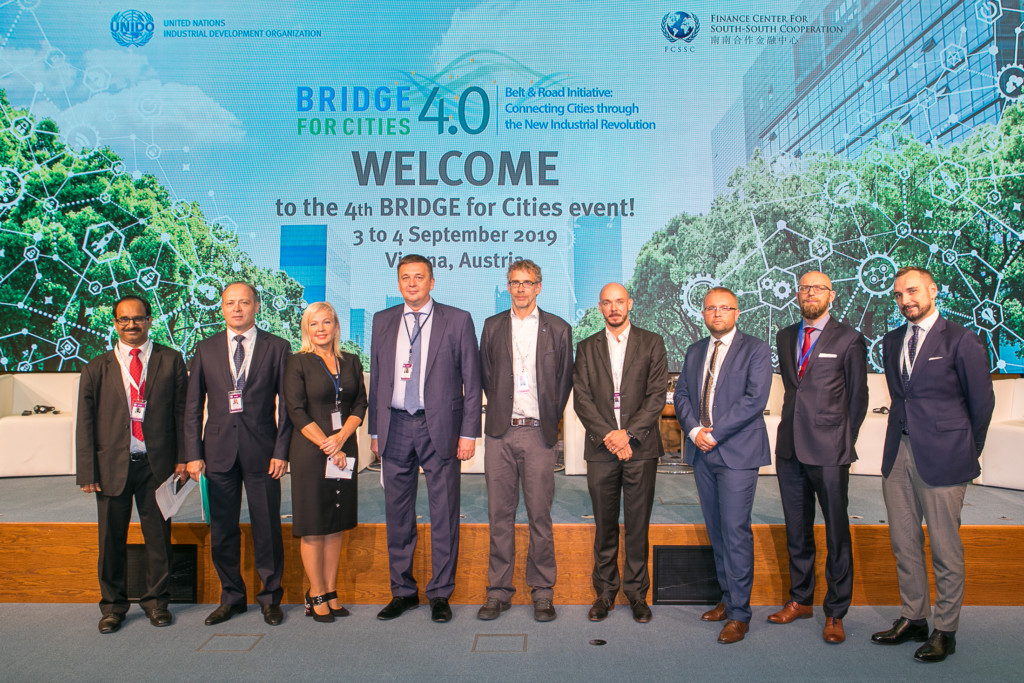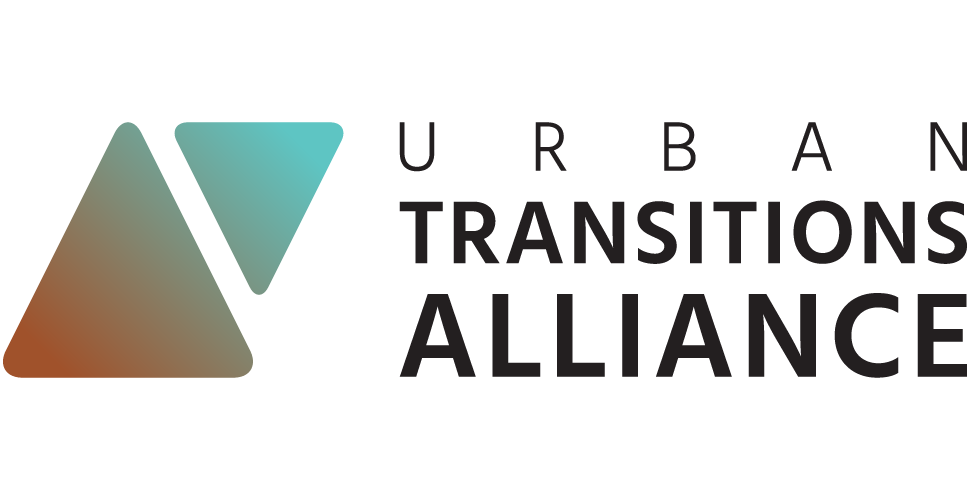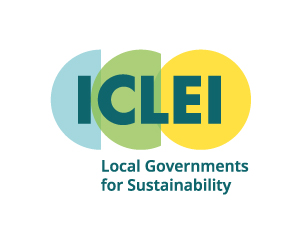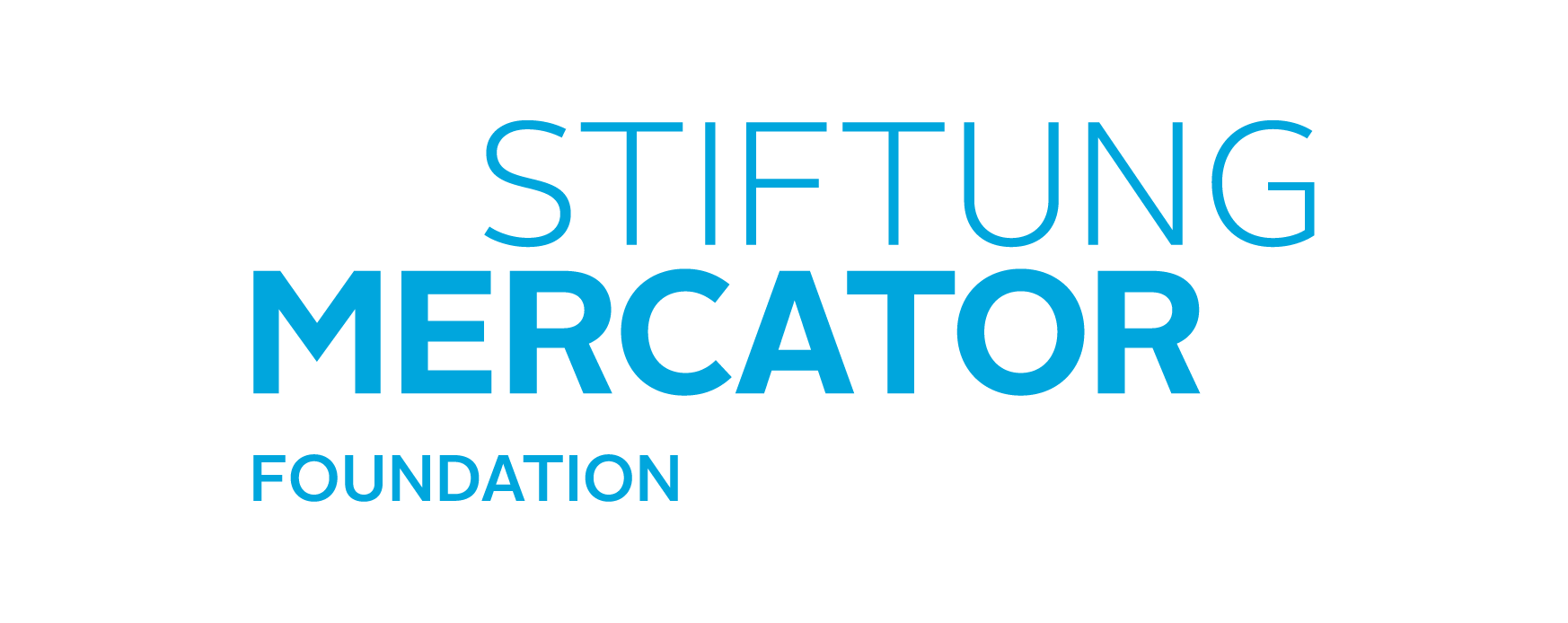INDUSTRY 4.0 IN INDUSTRIAL LEGACY REGIONS
HOW CAN THE FOURTH INDUSTRIAL REVOLUTION SUPPORT SUSTAINABLE AND INCLUSIVE TRANSITIONS IN CITIES
By Hannah Rothschild, City-Business Collaboration Officer, ICLEI – Local Governments for Sustainability
How advanced technologies and new industrial solutions can support sustainable and inclusive transitions in cities was the framing question for UNIDO’s BRIDGE for Cities 4.0 event on 3-4 September 2019, which hosted the first regional meet-up of the Urban Transitions Alliance phase II.
Attending UTA members Dortmund, Essen and Katowice were strongly featured during the event which supported knowledge sharing on how cities can harness digitalization and automation to support the implementation of the Sustainable Development Goals (SDGs). As case regions they were not only able to showcase their transition successes, but also share key lessons learnt from their industrial legacy heritage. Awareness of the challenges and barriers that industry 4.0 may hold and planning for unintended consequences are critical to ensure that local communities are fully included in the shift towards increased digital development.
CONNECTING TECHNOLOGY, SUSTAINABILITY AND INCLUSIVITY

Collaborative research in the Ruhr region explores opportunities of repurposing old mine shafts for energy storage.
Throughout the event, the cities showcased how new technologies and digital innovations are generating new use opportunities for existing industrial infrastructure and citizen skill sets. In Essen, a research and technical consortium is exploring how a disused old mine shaft can be repurposed to provide energy storage for renewable power sources. Dortmund shared how business investment into new digitalized sectors such as energy 2.0, logistics, production innovation, data mining and ICT have increased the number of jobs to higher than during Dortmund’s industrial peak. Such examples illustrate the potential for new industrial solutions to improve the environmental quality of industrial urban regions, support the re-use of existing infrastructure, find new avenues for existing strong R&D capacities and generate economic opportunities for local communities.
To further explore the need for inclusivity in urban transitions, The Urban Transitions Alliance Secretariat held a closed door workshop for UTA members focusing on integrating equity into sustainability initiatives. As cities accelerate climate action, there should be an imperative to not only encourage citizen participation, but also explore how sustainability projects can be re-envisioned by putting equity at the core. The cities dissected which of their local initiatives fitted this framing, including progressive master planning practices in Dortmund and Essen’s New Ways to the Water Project. Both cities emphasized that taking an equity-driven approach requires more collaboration and coordination with other city departments and stakeholder groups. However, by doing so, there is potential to increase positive social outcomes, build community support for the project as well as unlock additional funding.
LEARNING PARTNERSHIPS WITH INDUSTRIAL PEERS
The BRIDGE for Cities event and the topic of sustainable cities and Industry 4.0 also provided a platform for partnership building with other industrial regions. Dortmund and Essen, representing the Ruhr region in Germany, further expanded collaboration with GZM Metropolis in Poland as well as reconnected with fellow UTA member Katowice. New partnership constellations also emerged through the three-way case region session featuring the Ruhr, GZM Metropolis and the Sverdlovsk Region in Russia. All three regions strongly emphasized the need to strengthen investment in clean technologies through collaborative approaches, and to closely engage their local communities in defining new transition pathways. These regions proudly build on their industrial heritage to leverage their legacy infrastructures and unique urban fabric to create new opportunities.

From left to right: Emani Kumar, Deputy Director, ICLEI; Sergey Perestoronin, Minister of Industry and Science of the Sverdlovsk Region, Russian Federation; Irina Makieva, Deputy Chairman of VEB.RF; General Director of Monotowns Development Fund, Russian Federation; Vasily Kozlov, Minister of International and Foreign Economic Relations of the Sverdlovsk Region, Russian Federation; Sebastian Schlecht, Project Manager European Green Capital, Essen, Germany; Dirk von Bracht, Climate and Energy Manager, Dortmund, Germany; Mateusz Rykała, Vice-President and Member of the Board, Katowice Special Economic Zone, Poland; Mariusz Jankowski, Director of Investors Assistance Department, Katowice City Hall, Poland; Jacek Woźnikowski, Director at the Department of Socio-Economic Development and Cooperation, Metropolis GZM, Poland.
Dortmund and Essen also engaged in an inter-regional exchange CiBiX Workshop with Shenzen, China. Clear parallels could be drawn between the three cities on how they are embracing new technological advances in energy, mobility and air quality management. Regarding future collaboration potential, the circular economy emerged as a key topic of interest for all the cities.
Moving ahead, the Alliance cities will start to reframe their transition exchange and learning around the question of equity and social inclusion. This will be the cornerstone for the transition challenge program that will be featured throughout the UTA in 2020 and 2021.


